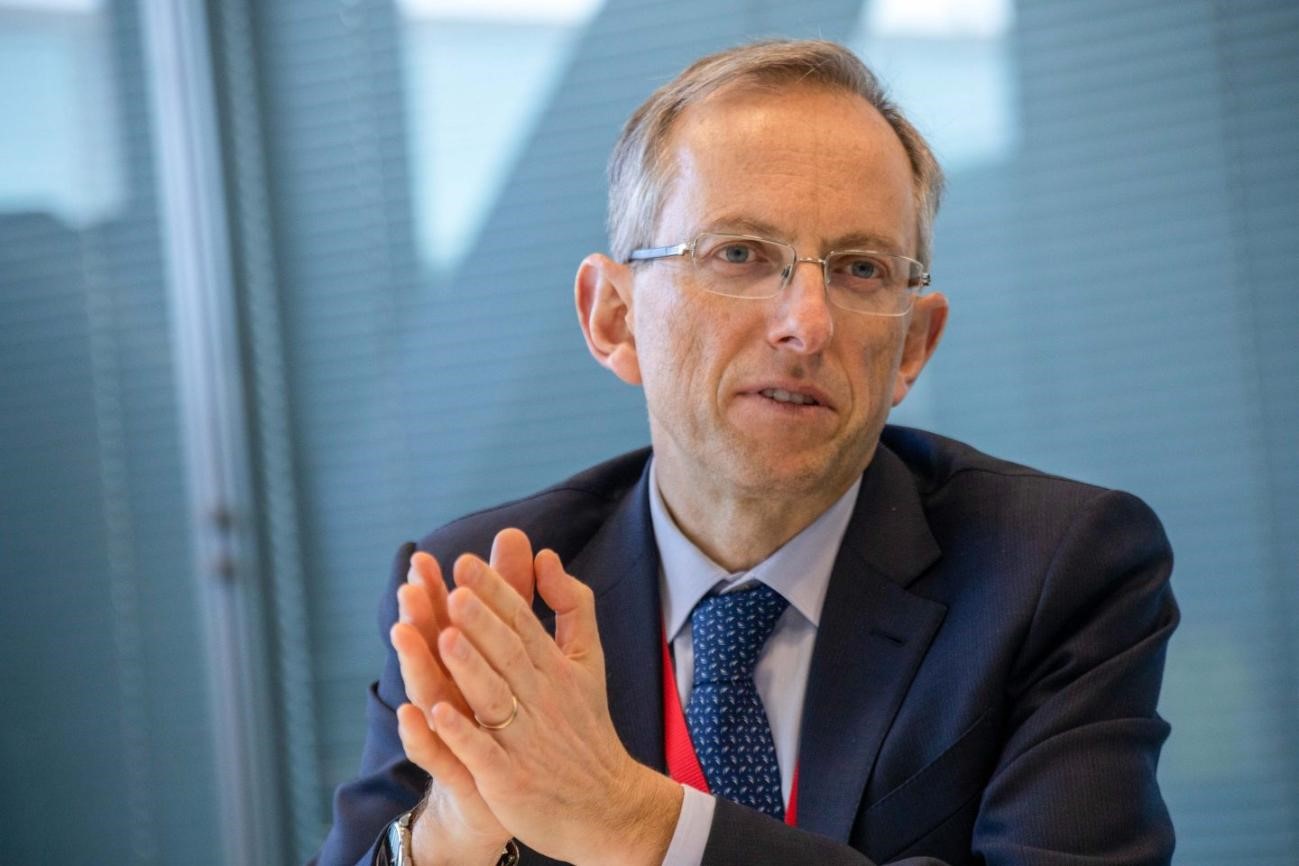
多年来,法拉利(Ferrari)迟迟没有加入电动汽车革命,但它终于迫于压力,开始开发全电动汽车。然而,这家意大利高档汽车公司表示,公司不可能屈从于另外一种汽车行业的重要趋势:自动驾驶汽车。
法拉利的首席执行官贝内德托·维尼亚称,该超级跑车制造商的标志性品牌是设计人们希望亲手驾驶的跑车,像特斯拉(Tesla)等公司一样开发自动驾驶技术违背了公司的精神。
维尼亚于5月9日在《金融时报》于英国伦敦主办的“未来汽车峰会”(Future of the Car Summit)上指出:“有四种软件。分别是性能软件、舒适度软件、娱乐信息软件和自动驾驶软件。”
他继续说道:“我们不关心最后一种。”
这并非维尼亚或者其他法拉利高管第一次承诺不会开发自动驾驶汽车。他们表示,让汽车自动驾驶违背了买车的目的,因为购买法拉利的大多数客户并不想由其他的人或物驾驶他们的汽车。
维尼亚2022年在接受彭博社采访时称:“没有客户会为了享受兜风的乐趣,而为车内的计算机付费。人的价值,以人为本,这才是根本原则。”
法拉利的高管曾经在2016年表示,在短期内,自动驾驶技术不在公司的考虑范围之内。时任法拉利产品营销总监的尼古拉·博阿里在接受《汽车》(Car)杂志采访时说:“在可以预见的未来,法拉利不会有自动驾驶汽车。我们希望用户在驾驶法拉利的时候保持专注。”
在《金融时报》举办的峰会上,维尼亚表示,法拉利的所有产品几乎都在内部完成生产,法拉利对此感到自豪,公司高管可能无论如何都不想专门拿出资源开发自动驾驶技术。
据麦肯锡2021年的报告显示,从老牌车企到专注于自动驾驶的初创公司,自2014年以来,车企在自动驾驶技术方面已经投入了超过1,000亿美元。但很少有公司能够拿出值得炫耀的投资成果,因为仅特斯拉汽车的自动驾驶辅助系统已经造成了数百起事故。
虽然遭遇了挫折,但许多汽车厂商仍然在不断加大对自动驾驶技术的投资,尤其是有大型母公司支持的公司。例如,大众汽车(Volkswagen AG)在2022年宣布投资23亿美元,与一家中国自动驾驶公司成立合资公司。大众汽车公司是全球销量最高的汽车厂商之一,旗下包括大众、奥迪(Audi)和保时捷(Porsche)等品牌。
虽然保时捷至少在短期内不会开发自动驾驶汽车,但维尼亚讲述了公司的未来电动汽车计划,这可能令希望该豪车品牌现代化的潜在客户备受鼓舞。
法拉利一直不愿意将强大的内燃机发动机换成安静的电池,原因与其反对自动驾驶的原因相同。2013年,该公司的时任董事长卢卡·迪·蒙泰泽莫洛公开表示,“只要我担任董事长,法拉利就永远不会生产电动汽车”,因为公司当时忙于发展核心业务。
但过去十年,电动汽车变得日益流行,包括保时捷和玛莎拉蒂(Maserati)等跑车品牌纷纷推出了电动汽车车型。为了保持竞争力,法拉利正在开发第一款全电动汽车,预计将在2025年上市,法拉利甚至宣布到2030年整个价值链,从材料采购到生产均实现碳中和。法拉利会继续生产混合动力和内燃机汽车,使用由捕集的二氧化碳排放和清洁生成的氢生产的电子燃料。
法拉利在2022年发布的财务前景预测中,提出了到2030年混合动力或全电动汽车的销量占比达到80%的目标,在本周举办的《金融时报》峰会上,维尼亚重申,由于使用电子燃料,公司的增长计划“完全符合”其碳中和目标。(财富中文网)
译者:刘进龙
审校:汪皓
多年来,法拉利(Ferrari)迟迟没有加入电动汽车革命,但它终于迫于压力,开始开发全电动汽车。然而,这家意大利高档汽车公司表示,公司不可能屈从于另外一种汽车行业的重要趋势:自动驾驶汽车。
法拉利的首席执行官贝内德托·维尼亚称,该超级跑车制造商的标志性品牌是设计人们希望亲手驾驶的跑车,像特斯拉(Tesla)等公司一样开发自动驾驶技术违背了公司的精神。
维尼亚于5月9日在《金融时报》于英国伦敦主办的“未来汽车峰会”(Future of the Car Summit)上指出:“有四种软件。分别是性能软件、舒适度软件、娱乐信息软件和自动驾驶软件。”
他继续说道:“我们不关心最后一种。”
这并非维尼亚或者其他法拉利高管第一次承诺不会开发自动驾驶汽车。他们表示,让汽车自动驾驶违背了买车的目的,因为购买法拉利的大多数客户并不想由其他的人或物驾驶他们的汽车。
维尼亚2022年在接受彭博社采访时称:“没有客户会为了享受兜风的乐趣,而为车内的计算机付费。人的价值,以人为本,这才是根本原则。”
法拉利的高管曾经在2016年表示,在短期内,自动驾驶技术不在公司的考虑范围之内。时任法拉利产品营销总监的尼古拉·博阿里在接受《汽车》(Car)杂志采访时说:“在可以预见的未来,法拉利不会有自动驾驶汽车。我们希望用户在驾驶法拉利的时候保持专注。”
在《金融时报》举办的峰会上,维尼亚表示,法拉利的所有产品几乎都在内部完成生产,法拉利对此感到自豪,公司高管可能无论如何都不想专门拿出资源开发自动驾驶技术。
据麦肯锡2021年的报告显示,从老牌车企到专注于自动驾驶的初创公司,自2014年以来,车企在自动驾驶技术方面已经投入了超过1,000亿美元。但很少有公司能够拿出值得炫耀的投资成果,因为仅特斯拉汽车的自动驾驶辅助系统已经造成了数百起事故。
虽然遭遇了挫折,但许多汽车厂商仍然在不断加大对自动驾驶技术的投资,尤其是有大型母公司支持的公司。例如,大众汽车(Volkswagen AG)在2022年宣布投资23亿美元,与一家中国自动驾驶公司成立合资公司。大众汽车公司是全球销量最高的汽车厂商之一,旗下包括大众、奥迪(Audi)和保时捷(Porsche)等品牌。
虽然保时捷至少在短期内不会开发自动驾驶汽车,但维尼亚讲述了公司的未来电动汽车计划,这可能令希望该豪车品牌现代化的潜在客户备受鼓舞。
法拉利一直不愿意将强大的内燃机发动机换成安静的电池,原因与其反对自动驾驶的原因相同。2013年,该公司的时任董事长卢卡·迪·蒙泰泽莫洛公开表示,“只要我担任董事长,法拉利就永远不会生产电动汽车”,因为公司当时忙于发展核心业务。
但过去十年,电动汽车变得日益流行,包括保时捷和玛莎拉蒂(Maserati)等跑车品牌纷纷推出了电动汽车车型。为了保持竞争力,法拉利正在开发第一款全电动汽车,预计将在2025年上市,法拉利甚至宣布到2030年整个价值链,从材料采购到生产均实现碳中和。法拉利会继续生产混合动力和内燃机汽车,使用由捕集的二氧化碳排放和清洁生成的氢生产的电子燃料。
法拉利在2022年发布的财务前景预测中,提出了到2030年混合动力或全电动汽车的销量占比达到80%的目标,在本周举办的《金融时报》峰会上,维尼亚重申,由于使用电子燃料,公司的增长计划“完全符合”其碳中和目标。(财富中文网)
译者:刘进龙
审校:汪皓
For years, Ferrari dragged its heels on joining the electric vehicle revolution until it finally caved in and started developing a fully-electric car. But the Italian luxury auto company says it’s unlikely to ever cave to another major car trend: self-driving vehicles.
The iconic supercar maker’s brand is to design sports cars that people want to drive themselves, and capitulating to self-driving technology like others such as Tesla have would be antithetical to the company’s spirit, according to Ferrari CEO Benedetto Vigna.
“There are four kinds of software. There is performance software, there is comfort software, there is infotainment software, and there is autonomous,” Vigna said at the Future of the Car Summit hosted by the Financial Times in London on May 9.
“The last one, we don’t care,” he continued.
It isn’t the first time Vigna or other Ferrari executives have pledged not to go autonomous, arguing that enabling their cars to drive themselves would defeat the purpose of buying one, since most customers who purchase a Ferrari don’t plan on being driven around by someone or something else.
“No customer is going to spend money for the computer in the car to enjoy the drive,” Vigna said in an interview with Bloomberg last year. “The value of the man, of the human at the center, is fundamental.”
Ferrari executives knew as far back as 2016 that self-driving technology was not in the cards for the company any time soon. “There will be no autonomous Ferrari in the foreseeable future,” Nicola Boari, at the time Ferrari’s product marketing director, said in an interview with Car magazine. “When you are driving a Ferrari, we want you to concentrate.”
In the case of Ferrari, a company that proudly does almost all of its production in-house, executives may not have wanted to dedicate resources to develop autonomous driving technology in any case, Vigna suggested at the FT’s summit.
Car companies, from legacy manufacturers to autonomy-focused startups, have sunk over $100 billion into self-driving technology since 2014, according to a 2021 report by consulting firm McKinsey. But few companies have much to show for their investments, as Tesla vehicles equipped with driver assistance systems alone have been accused of causing hundreds of accidents.
Despite the setbacks, many carmakers are doubling down on autonomous driving, especially companies with the backing of large parents. For instance, Volkswagen AG—among the world’s largest automakers by sales that operates brands including Volkswagen, Audi, and Porsche—announced a $2.3 billion investment in a joint venture with a Chinese autonomous driving company last year.
While Ferrari won’t roll out self-driving cars anytime soon, if ever, potential customers hoping the luxury brand will modernize were likely encouraged by Vigna’s comments about the company‘s planned electric future.
For the same reasons Ferrari opposed autonomous cars, it has been reluctant to trade in its powerful combustion-fired engines for quiet batteries. In 2013, the company’s then-chairman Luca di Montezemolo professed that Ferrari would “never manufacture an electric car for as long as I am chairman” as the company scrambled to stay close to its roots.
But the EV tide has only grown in the decade since, with several other sports car brands including Porsche and Maserati introducing their own electrified models. Ferrari is now developing its first fully-electric car, due in 2025, to stay competitive and has even announced a target to hit carbon neutrality by 2030 across its entire value chain, from sourcing materials to manufacturing. The company will continue to produce hybrids and internal-combustion vehicles, utilizing e-fuels made from captured carbon dioxide emissions and cleanly-generated hydrogen.
In a financial outlook presented last year, Ferrari set itself a goal for 80% of its sales to be hybrids or fully electric by 2030, and during the FT summit this week, Vigna reiterated that, due to e-fuels, the company’s growth plan was “fully compatible” with its carbon neutrality goals.






